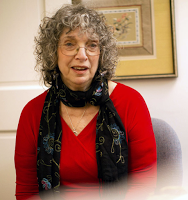How could a woman be expected to make such an important, and irrevocable decision without being properly informed? The Child Welfare League of America’s Standards of Excellence for Adoption Practices recommend that all mothers considering adoption and their families receive “counseling to help them understand the grief and loss” they may experience. This is only a recommendation, however, and is not enforced.
Elizabeth Samuels, Associate Professor of Law, University of Baltimore, states: “For mothers considering placing their children for adoption, skilled, unbiased counseling is invaluable: complete, well-communicated information is indispensable; and time is, perhaps, ‘the wisest counselor of all.’” Yet Samuels notes: “Many of these state laws do not ensure that best practices will be followed in all infant adoptions…. When a state places its legal imprimatur on the unmaking of one family and the making of another, the state should at least ensure to the greatest extent possible that all the individuals involved have followed or have been afforded ‘best practices.’ These are the practices that ethics and humanity demand…. In a number of other countries—including European countries and Australian states—consent may not be given or does not become final for a period of approximately six weeks.”
Jonelle and Adrian, like all mothers and babies who are unnecessarily torn apart by adoption will suffer life-long feelings of loss. Yet, despite the gravity of an act made by the stroke of a pen that affects the lives of many extended family members—both related and by adoption—the distressed mother is denied the decency of a “cooling off” or grace period, unlike any other legal transaction.
Jim Gritter writes in Lifegivers: Framing the Birthparent Experience in Open Adoption: “How curious that one moment these critics admire [a mother’s] contemplation of adoption and consider it a sign of maturity, and the next they consider it a cause for concern. The proposed act that one day was regarded as a ‘loving choice’ is the next referred to as ‘unloading responsibility.’”
If her new attorney is successful in getting her relinquishment revoked based on coercion and pressure and the timing so soon after her birth….she will still have to prove her fitness as compared to the strangers in whose custody her infant son has now been for fewer months than he was inside of her. Why? Why must she prove her fitness? Why is she guilty until proven innocent? She is “guilty” of having trusted “her” attorney to explain and represent her rights. If she had never made that one phone call to a so-called adoption “agency” and instead simply given birth and taken her son home from the hospital, there would have been no question of her fitness. The irony is that in doing what women are told is “best” for their babies, they are automatically labeled unfit.
Infant adoption in the US is in dire need of an overhaul. “Professionals and organizations concerned with professional adoption practice have uniformly opposed the facilitation of adoption through intermediaries, such as medical doctors and attorneys, who are neither trained nor licensed to provide child placing services….” Yet, there is “no professional association or academics, no certification or licensing procedures, no professional recognition as adoption specialists, and no training or educational qualifications.”
Unlicensed, untrained adoption facilitators hurt all of the parties to adoption. They are often only charged when they have ripped off or scammed one of their paying clients, and few of them ever press charges. But the most innocent, most vulnerable are of course at the greatest risk. Lack of proper background checks by unregulated entrepreneurs have led to children being placed with pedophiles and even murderers, all in the name of free enterprise. Who is concerned about, and protecting the rights of, these precious children—and their mothers—after they are born?
Sources:
L. Ann Babb, Ethics in American Adoption, Westport, CT: Bergen and Garvey, 1999.
Laura Mansnerus, “The Baby Bazaar: How Bundles of Joy Not for Sale Are Sold.” New York Times, October 26, 1998
Dan Gearino, “Special Report Hope & Risk: Money, Hope Lost In Failed Adoptions,” Courier Des Moines Bureau and Courier Lee News Service. February 20, 2006.
Jamie Court, “Beware the Baby Profiteers.” LA Times, August 20, 2006.
Elizabeth J. Samuel, “Time to Decide? The laws governing mothers’ consents to the adoption of their newborn infants.” Tennessee Law Review, V. 72, Winter 2005.
Lifegivers: Framing the Birthparent Experience in Open Adoption. Washington, DC: CWLA Press, 2004.
(Note: You can view every article as one long page if you sign up as an Advocate Member, or higher).





